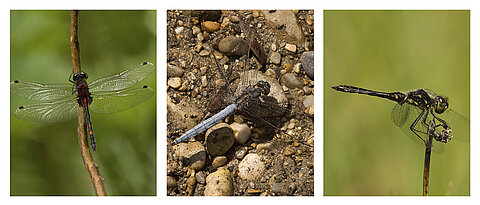
The colour of dragonfly communities reacts to seasonal variation in solar radiation. Over the last 30 years, however, this colour pattern has changed – probably as a result of climate change.
more
The colour of dragonfly communities reacts to seasonal variation in solar radiation. Over the last 30 years, however, this colour pattern has changed – probably as a result of climate change.
more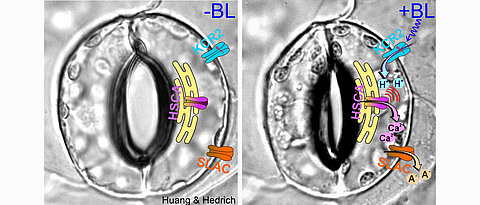
Using optogenetics, Würzburg researchers have detected a new acid sensor in plant cells that is addressing a cell-internal calcium store, as they report in the journal "Science".
more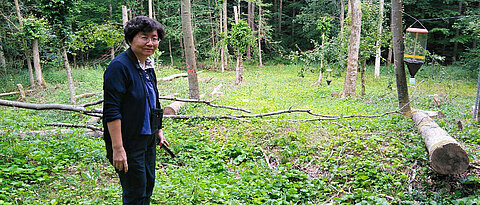
A DFG research group led by the University of Würzburg has developed a method that makes it possible to analyse the relationship between biodiversity within and between ecosystems and the multifunctionality of entire landscapes.
more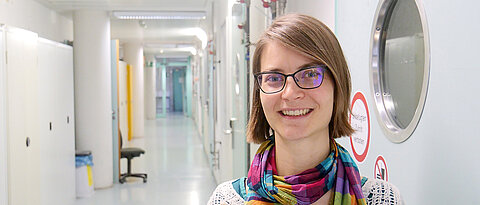
How do flies and ants find their way? Neuroscientist Hannah Haberkern is investigating this question with a new Emmy Noether independent junior research group. To do this, she has moved from the USA to Würzburg.
more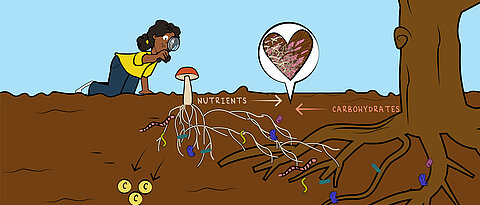
Inspiring children around the globe to learn about soil diversity - that is the aim of an initiative launched by Malte Jochum, an ecologist at the University of Würzburg.
more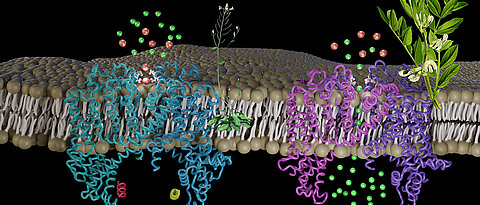
Plants in which an ion channel of the vacuole is hyperactive are extremely stressed and grow poorly. But the broad bean is an exception, as Würzburg researchers have discovered.
more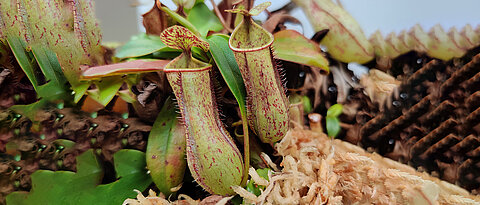
A new study by Würzburg botanist Kenji Fukushima shows the role of subgenome dominance for plants in the evolutionary development of special traits, such as a carnivorous lifestyle.
more
Their work is most frequently cited in publications of other scientists. Researchers from the University of Würzburg are therefore included in the Highly Cited Researchers 2023 list.
more
MYC proteins play an important role in many types of cancer. A research team at the University of Würzburg has now succeeded in indirectly influencing these proteins - with clear consequences for the tumor.
more
Animal sounds are a very good indicator of biodiversity in tropical reforestation areas. Researchers led by Würzburg Professor Jörg Müller demonstrate this by using sound recordings and AI models.
more
Combinations of unfavourable weather conditions over several years can cause a decline in insect biomass. This is shown by a study published in "Nature" by a team led by Professor Jörg Müller.
moreOn July 26, 2023, Katalin Karikó was awarded the Theodor Boveri Prize by the Würzburg Physical-Medical Society. Those who could not experience her inspiring lecture in person at the Biocenter can watch the recording here.
more
How can the cultivation of cacao be improved by using the right pollination technique? This has now been investigated by a research team including Ingolf Steffan-Dewenter's Department of Animal Ecology and Tropical Biology.
more
In the fruit fly Drosophila, circadian clocks also control fat metabolism. This is shown in a new study by a research team at the University of Würzburg. The findings could also be relevant for humans.
more
In the form of DNA, nature shows how data can be stored in a space-saving and long-term manner. Würzburg's chair of bioinformatics is developing DNA chips for computer technology.
more